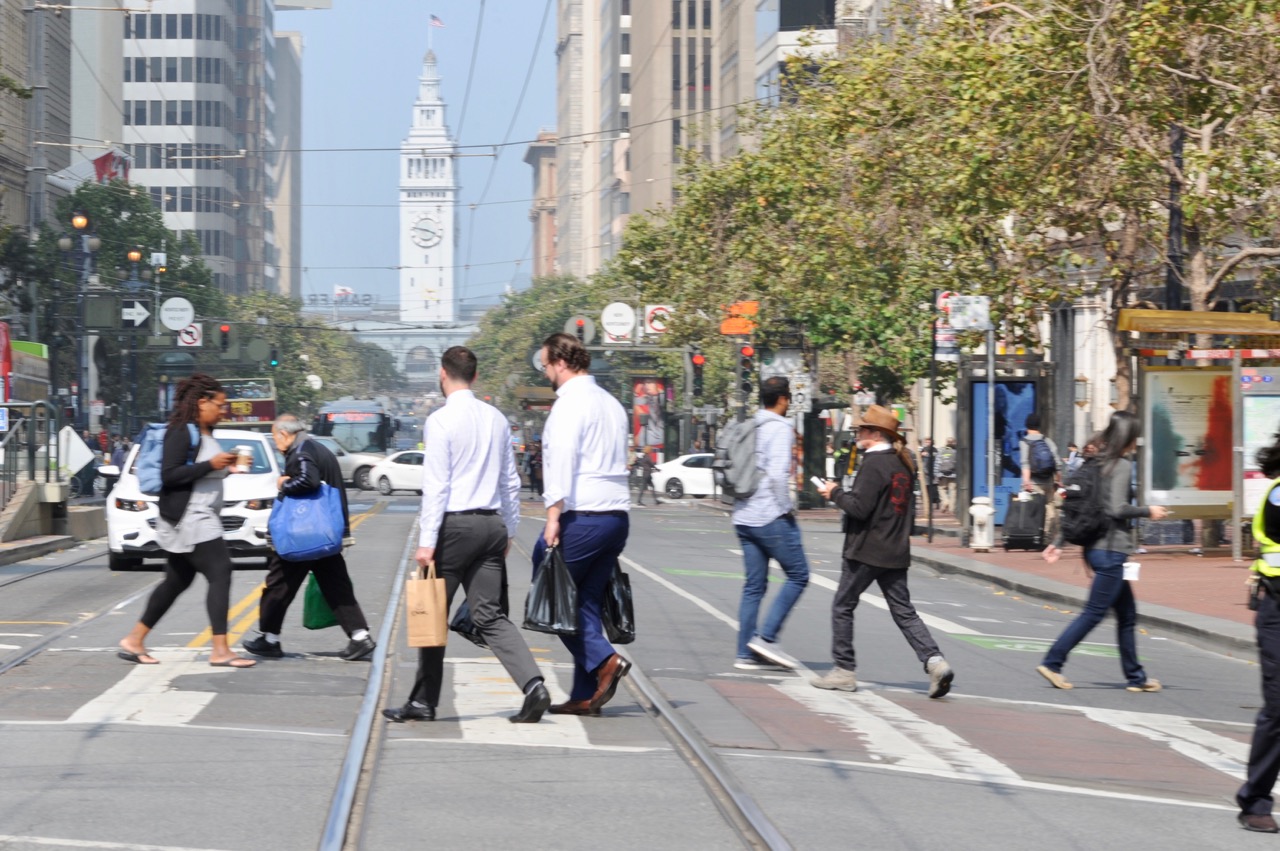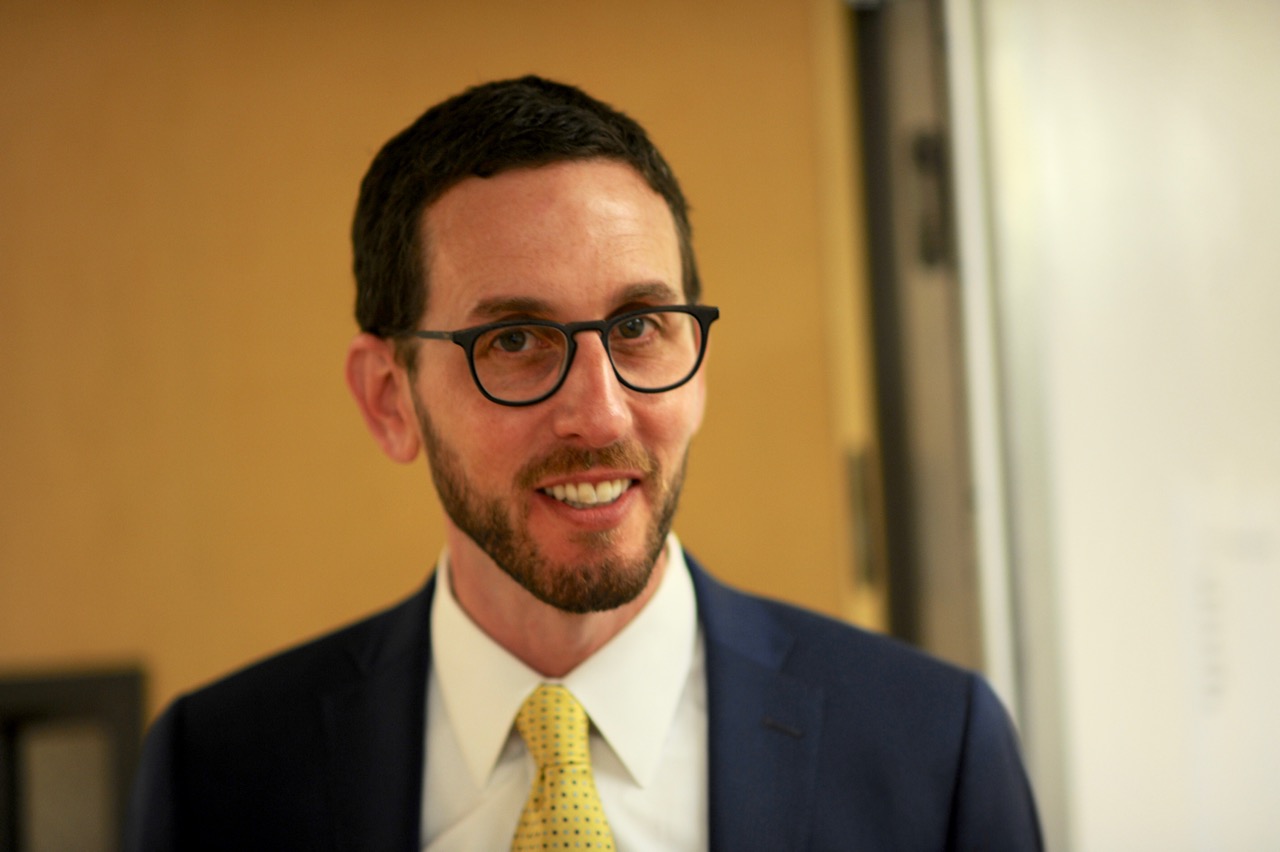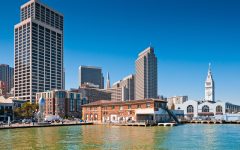
Panoramic view of famous Golden Gate Bridge from scenic Baker Beach, San Francisco, CA. (Photo: canadastock/Shutterstock)
San Francisco to Consider Backtracking on Boycott of Conservative States
Officials report boycott has not been effective and has cost the city money
By Martin Marks, February 23, 2023 2:45 am
The cultural divide in America appears to have heightened in recent years with so-called Red and Blue states at loggerheads over many of the social issues debated in legislatures across the nation and prominently featured in the media almost daily. And apparently it was not enough for some state and city officials to concern themselves with those issues within their jurisdictions. California in particular saw it necessary to act in order to influence policy in other states—states certainly more conservative than the Golden State.
Come to think of it, aren’t all states more Conservative than The Golden State? Apologies–I digress.
In 2016, primarily as a reaction to the state of North Carolina enacting controversial policy that prevented individuals from using restrooms and locker facilities that aligned with their particular gender identity, California passed AB 1887 which prevented California officials from traveling at taxpayer cost to any state that:
“has enacted a law that voids or repeals, or has the effect of voiding or repealing, existing state or local protections against discrimination on the basis of sexual orientation, gender identity, or gender expression.”
At the time of its passage, AB 1887 applied to only four other states. Since then, California has expanded its official travel bans to include those states which have adopted what California deems to be anti-abortion, voter suppression, and pro-gun policies in addition to laws which are perceived to be targeting the LGBT community. So, the number of states now included in California’s official state travel ban is now nearly half of all states in the Union.
The California ban did not come without controversy.
In the summer of 2022, California Governor Gavin Newsom and family traveled to Montana for vacation. No one should begrudge the hard-working governor a vacation, but Montana is one of the 22 states where California law now bans official travel at the taxpayers’ expense. And while spokespersons from the Governor’s office were quick to point out that he was traveling to Montana on his own dime, they neglected to point out—and then subsequently were forced to admit–that Newsom’s security detail, which involves both personnel and vehicles were sent to Montana with him and certainly were being provided for by the taxpayers of California.
It was in fact the Governor’s signature on AB 1887, which in retrospect might just be nothing more than virtue signaling at its worst.
Evidently not to be outdone by its parent state, and looking to take matters one step forward, in October of 2016 San Francisco City Supervisors enacted a boycott of their own when they approved a law that banned city-funded travel to states that had restricted LGBTQ rights. But, in addition to the travel ban for city officials, San Francisco’s law prevented the city from entering into contracts with companies in the banned states. Subsequently, Supervisors expanded the ban to extend to states that limited abortions and were perceived to have restricted voter access. The list of banned states in the San Francisco law totaled 30.
At the time, the goals for the law were to enlighten these banned states and pressure them to re-examine and change the policies that got them on the naughty list to begin with. Now, a little more than 6 years later, officials in San Francisco are starting to reconsider the law for amendment or possibly even total repeal.
A recent report from City Administrator Carmen Chu indicated that the law has been considerably short of effective. Only one state has ever been removed from the banned list since the 2016 law was enacted and none of the banned states have ever cited San Francisco’s or the State of California’s boycott as rationale for changing any of their own policies.
Beyond its apparent ineffectiveness, the extensive boycott has become problematic on other levels as well. The law was also found to add costs and complexity to city contracting at taxpayer expense by drastically diminishing the number of potential companies with which the City of San Francisco could conduct business. Some, like District 11 State Senator Scott Weiner (D-San Francisco), who originally advocated for the 2016 boycott, now claims mixed feelings on the ill-conceived law as the contracting ban did not hold out exceptions for businesses in the banned states that are owned and operated by individuals that the boycott ostensibly was meant to champion—such as those in the LGBTQ community.
In the coming weeks, the Board of Supervisors will consider a proposal backed by Supervisor Ahsha Safai and Matt Dorsey which would exempt construction contracts from the boycott and potentially lower costs to San Francisco. Another proposal, set forth by Supervisor Rafael Mandelman, will ask the Board to repeal the boycott law in its entirety. He said of the now 6-year boycott:
“It’s an ineffective policy that complicates the business of San Francisco government and makes it very likely that we pay more than we should for goods and services.”
San Francisco Mayor London Breed also favors either amending the boycott law or backing Mandelman’s effort to repeal it. Breed’s office put out a statement which said:
the mayor recognizes the well-intentioned effort behind the boycott and acknowledges the many difficulties that affect contracting in the City, and would support changes, including the legislation being worked on by Mandelman.
In the interests of fair reporting, it should be noted that on the other side of the political spectrum, conservative groups and individuals have been involved in boycotts of their own–essentially over the same social issues. By contrast, it appears as if conservatives have taken a more surgical approach. Instead of boycotts encompassing entire states as was done in California, and San Francisco in particular, conservatives have been targeting companies which have embraced so-called “Woke” ideology to varying extents. More precisely, conservative state legislatures are marking financial institutions that have taken up Woke initiatives for boycott–potentially jeopardizing state contracts and services that could be measured in the billions of dollars.
At the same time, a conservative group American Legislative Exchange Council (ALEC) will lobby state lawmakers to take up legislation that would shield companies from “political boycotts”. This initiative appears to have in mind financial institutions who the Council claims are trying to distance themselves from companies alleged to be complicit in Climate Change, such as those in the fossil fuel industry. The proposed legislation states:
“Banks are increasingly denying financing to creditworthy companies solely for the purpose of marketing their environmental or social justice credentials, to the detriment of their clients and shareholders.”
Regardless, and now back to the Left Coast, it appears that California’s and San Francisco’s Woke boycotts have been a flop—accomplishing nothing more than virtue signaling and costing their already overburdened taxpayers even more.
Americans have had varying success with boycotts during its existence. Most notably, the colonists’ boycott of British goods in the 1760’s in protest of the Stamp Act led to King George repealing the Act in 1766 and subsequently led to a revolution and American independence.
In the 1950’s the Civil Rights movement famously organized an avoidance of mass transportation with the Montgomery Alabama Bus Boycott. This led to the 1956 court ruling that segregated bus laws in Alabama and across the nation were unconstitutional.
Other boycotts, such as my avoidance of the National Football League (NFL) for three years now due to their over-the-top kowtowing to Woke ideology, have had limited success—although NFL viewership is indeed down during this time period.
It is perhaps time for Liberal bastions such as San Francisco to understand that their values are far from the mainstream of American thinking. Choosing the Woke route for themselves—even if it leads to the city-wide economic and social disaster we are now seeing—is one thing. Trying to impose those values on the rest of the nation is something totally different and now proven to be an exercise in futility and failure.
- Dodgers’ Ohtani Embroiled in Gambling Scandal - March 22, 2024
- Overwhelming Migrant Ingress Shifts To California - March 5, 2024
- Bay Area School District Parting Ways With Woke Kindergarten Program - February 15, 2024





I know that many organizations have stopped having conventions at the Mosconi Center in SF because members didn’t appreciate their states being boycotted even if they were not directly affected. San Francisco is not a “go-to” destination any more.
I would characterize the conservative efforts regarding boycotting as fighting fire with fire. It’s a reaction to leftist woke policies like the ones in San Francisco. The difference between the two is that the conservatives use a “controlled burn” approach and is intended to preserve rather than destroy.
Just like the hard core Marxist Democrats on the SF Board of Supervisors are boycotting conservative states, many of us are boycotting SF and refuse to ever step foot on the city’s crime infested and poop filled streets ever again.
Just like the hard core Marxist Democrats on the SF Board of Supervisors are boycotting conservative states, many of us are boycotting SF and refuse to ever step foot on the city’s crime infested and excrement filled streets ever again.